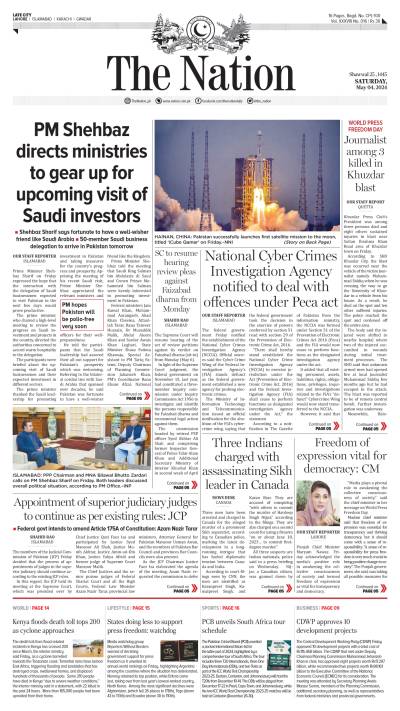LAHORE - Investors’ concern on the current political crisis in the country muted the performance of the stock market as the benchmark KSE-100 index lost around 1,100 points during first four sessions of the week. However, market recovered on the week’s last trading day by 793 points on probable resolution of the deadlock given talks between the Army Chief and the protesting parties. Resultantly, the KSE-100 index closed the week at 28,568, down 1.1 per cent WoW. Low investors confidence reflected in the average trading volumes as well which declined by 4.4 per cent WoW to 119 million shares. Construction and Materials sector plunged by 4 per cent WoW on risk of imposition of anti-dumping duty on Pakistan cement exports to South Africa (Lucky Cement down 11 per cent WoW). Meanwhile better-than-expected earnings and dividend announcements led to KEL outperforming the market by 11 per cent WoW. Other highlights of the week included: (1) Current Account deficit clocking in at $454m in July 2014 versus $125m in July 2013, (2) LSM growth of 3.9 per cent YoY for FY14, (3) Prime Minister signing $664.8mn project financing for Dasu Hydropower Project and Sindh Agriculture Growth Project with World Bank, (4) Pakistan receiving $371.4m from US under CSF and (5) FX reserves dipping by $344m to $13.6b.
According to stock market experts, the Supreme Court has upheld the decision of the Peshawar High Court regarding Gas Infrastructural Development Cess (GIDC) where the latter categorised the GIDC as unlawful from the date of which it was implemented. The GIDC Act 2011 was imposed through a money bill after passing the NA with the aim to generate cash to finance projects like Iran-Pakistan (IP) gas pipeline, Turkmenistan-Afghanistan-Pakistan-India (TAPI) gas pipeline and LNG import. The cess was categorised as a “fee” and not “tax” which fails to fit the money bill as per Article 73 of the Constitution of Pakistan. During the week, fertilizer manufactures have also increased their prices by a 3 year CAGR of 7 per cent. With the latest judgment on GIDC imposition, urea prices should come down by 16 per cent to Rs1,500/bag mark, a scenario in which Fatima will be the most negatively affected due to its US$-denominated feed supply contract with the government. Conversely, experts see positive EPS impacts for FFC (+9 per cent), EFERT (+12.5 per cent) and FFBL (+6 per cent). Experts attach a low probability to a urea price cut scenario where GIDC will likely be imposed through a different route.
They said that urea sales, in Aug 2014, are likely to remain at 538,000 tons while National Fertilizer Development Corporation has also disclosed July 2014 sales of 487,000 tons. In Aug 2014, sales are estimated to increase by 11 per cent MoM and 4 per cent YoY mainly due to higher imports. Urea sales by local producers may clock in at 427,000 tons in Aug 2014, up 2 per cent MoM but down 9 per cent YoY.
However, on cumulative basis, 8-moth 2014 urea sales would remain at 3.6m tons, down 2.9 per cent. By the end of Aug 2014, industry urea inventory is estimated at 380k tons, of which nearly 68 per cent rests with National Fertilizer Marketing Limited. Meanwhile, Indus Motor Company has also announced FY14 earnings of Rs3.9b (EPS Rs49.3) against Rs3.4b (EPS Rs42.7) last year, up 15 per cent YoY. In FY14, company recorded revenue of Rs57.1b which is down 11 per cent. During the year, volumes of locally assembled cars declined by 10 per cent to 35,000 units. However, rupee appreciation at the start of 2014 and low effective tax rate on the backdrop of CAPEX for new model of Corolla resulted into profitability growth.
Sunday, May 05, 2024
Political uncertainty continues to mute KSE performance
CPO orders prompt legal relief to masses
May 05, 2024
JI expresses solidarity with farmers
May 05, 2024
Judicial Revamp
May 05, 2024
Global Assassinations
May 05, 2024
Journalistic Peril
May 05, 2024
Tourist Tragedy
May 04, 2024
Ending Polio
May 04, 2024
Battling economic adversity
May 05, 2024
Importance of vaccinations
May 05, 2024
Jam Chakro Landfill
May 05, 2024
Livestock trade
May 05, 2024
Current state of affairs
May 04, 2024
ePaper - Nawaiwaqt
Advertisement
Nawaiwaqt Group | Copyright © 2024





